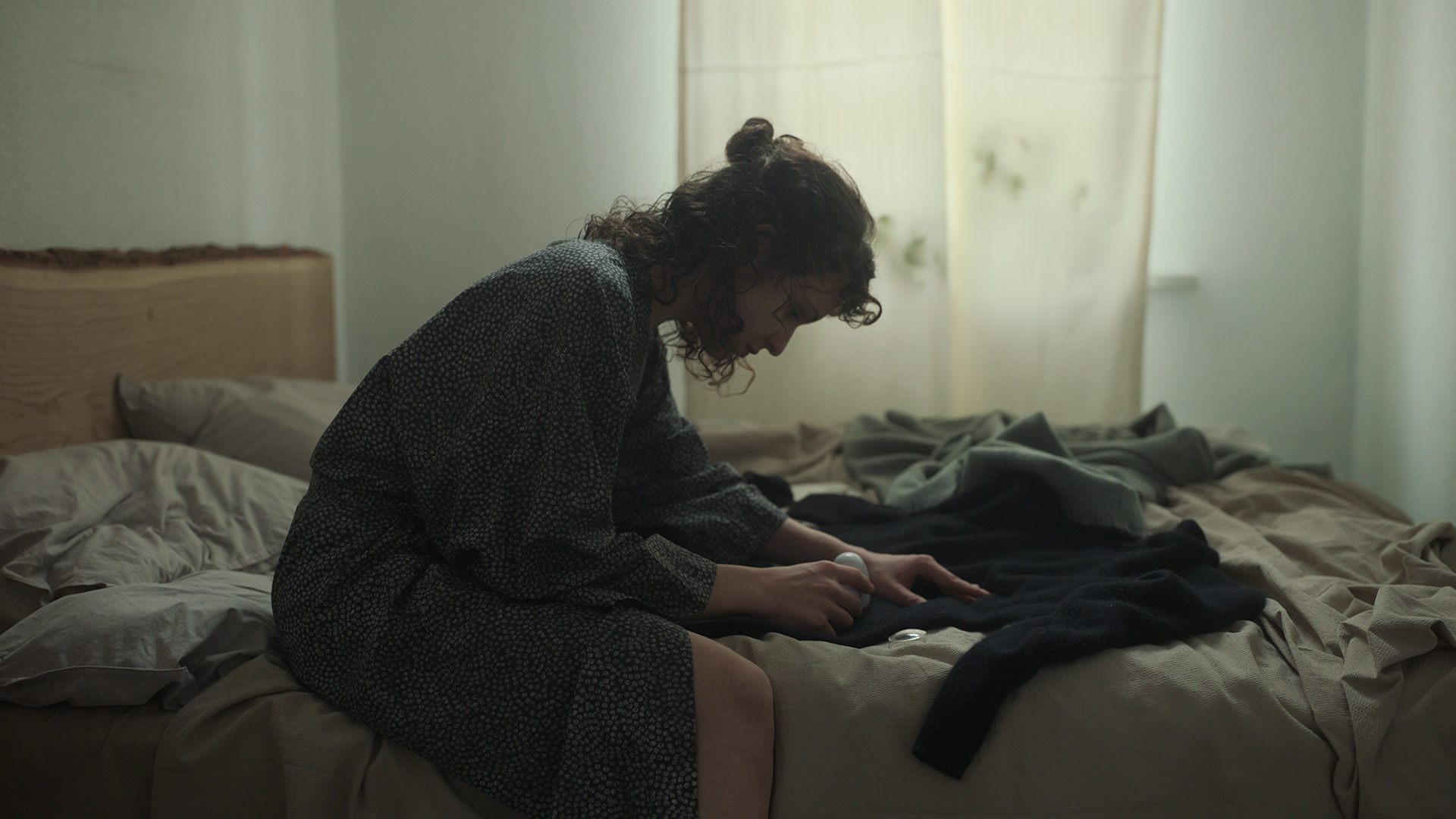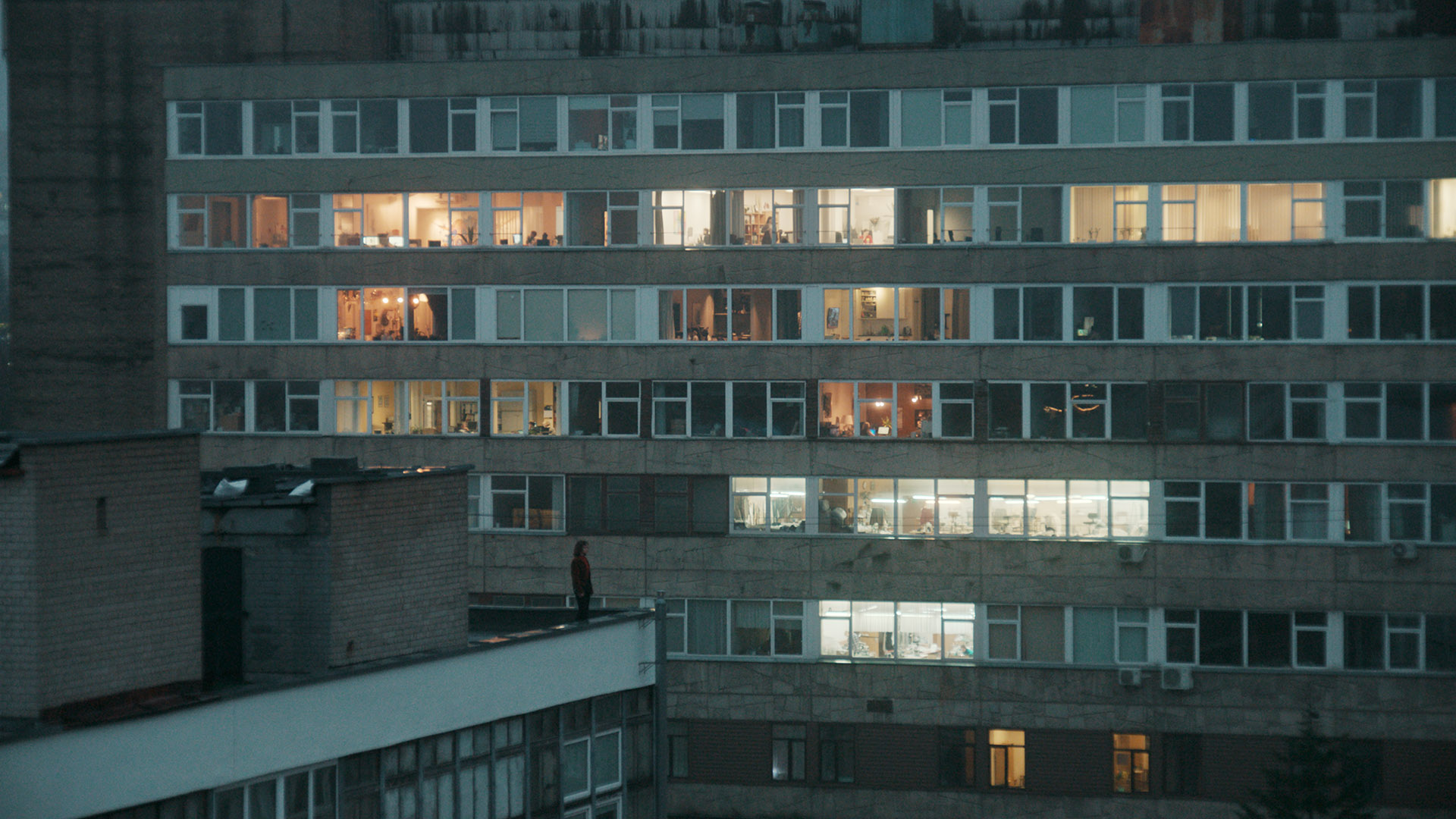
It is highly probable that before one’s own death, everyone has to organise someone else’s funeral. This is by far not an easy task. In addition to the searing grief, dying also brings a number of tasks that are at once utterly alien and intensely time-critical. Dovilė Šarutytė has made a strikingly captivating portrait of grief as a still-life of a person who once was.
Feature Film About Life, world premiere
24th Nov, Wednesday 18:15, Coca-Cola Plaza
„Feature Film About Life” creates a distinct and peculiar space for the viewer. At one level we are allowed to enter a very personal territory and at the same time we recognise how a universal story of the circles of life unfolds before us. How did „Feature Film About Life” grow from a feeling to a script?
The script is based on my personal experience. After the death of my father I started writing down the details and situations that stood out for me, and how I felt. As a sort of diary, it helped me to gain distance, it was a kind of therapy for me. After some time, when I came back to the words I had written, I understood that it was something I wanted to share. This personal yet universal experience. Or perhaps personal views of a universal experience. So I started collecting funeral stories. I asked friends and relatives to share their experiences and memories, mostly the ones that may be inappropriate for such an occasion – funny and desperate ones. I was searching for contrasts, conflicts. This is how it started. The more creative crew members joined, the deeper the subject was explored. Everyone had their own experience of the loss of a relative. And we all shared. It became a collective story in that sense.

The dramaturgy and the visual language of „Feature Film About Life” catches the eye and shines with a deliberate utter bleakness that creates the grounding for impactful honesty about the world that continues to go round regardless of the fact of whether your's is shattered into pieces. What were the most essential values for you to create an atmosphere of grief?
There used to be a burial tradition in Lithuania that lasted three days. Three days of farewell, of crying and saying goodbye. To assimilate to the loss. In these fast-moving consumption times, even the farewells have shortened. The subject of death is pushed away. We don’t want to think about it. This topic is difficult and not fun. But it is always relevant. I think it is important not to push this subject away. We are not eternal. We need to realize and accept temporality, because the understanding and acceptance of death will influence the way we live.
„Feature Film About Life” creates such a strong impact with the profound collusion between the dramaturgy and cinematography that brings it to life, in a such a nuanced approach, where you can feel the other character in a space where he no longer exists. How did you find the mutual creative language with the director of photography Eitvydas Doškus?
I studied together with Eitvydas Doškus and we made a short film together in the past, which is when we laid the foundation for our mutual creative language. But every journey is different. We really took it one step at a time.
The editing by Gintarė Sokelytė creates another captivating puzzle of memory pieces where recent past and childhood nostalgia align and create contrast with the carefree sweetness that once was. What purpose and meaning are the home video fragments carrying for you?
The main dramaturgical purpose is they work as flashbacks. They help to see what you don’t see in the story – the connection between father and daughter. Initially, I didn’t plan to use it at all. But just before the shoot I started watching our family archive to get some inspiration and understood that it would give great value to the film. Although it is of course tough to show such personal material of my family and myself, I felt it needed to be there.
You have trusted and chosen to have the world premiere of your very first feature film at the Black Nights film festival. What do you value about the festival?
I am extremely grateful for the invitation. I value the films the Black Nights film festival curates and am happy to be among them. Last year, we were participating in the “work in progress” program with this film. It was an online participation because of Covid and I’m so happy to now go back to Tallinn and the festival, and that there is a possibility to attend the festival in person. I’m looking forward to real meetings and connections.